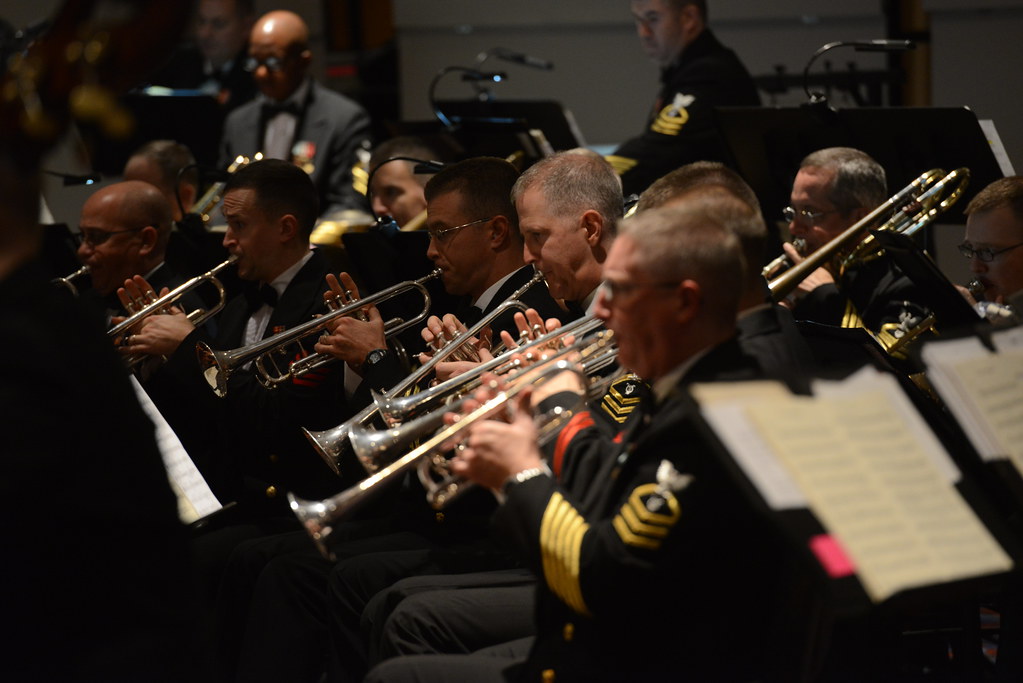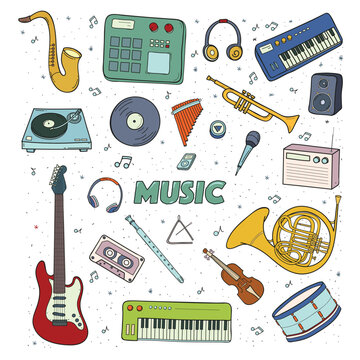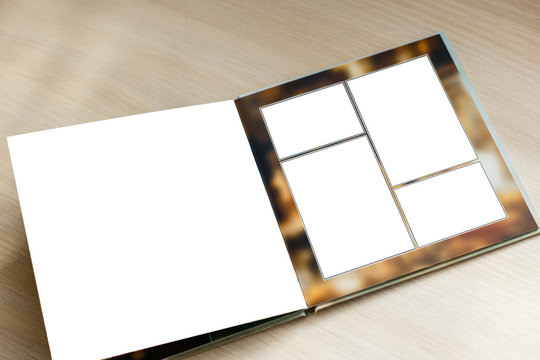Are you ready to learn about the top music production summer programs for high school students? Look no further! Our comprehensive guide will provide all the information you need to choose the right program for you. Music production summer programs offer students the opportunity to learn valuable skills, gain hands-on experience, and network with industry professionals. With our guide, you’ll discover the benefits of music production summer programs, the different types available, and our top picks for 2021. Let’s dive in and explore the world of music production summer programs for high school students.
Table of Contents

Benefits of Music Production Summer Programs
Music production summer programs for high school students provide a wide range of benefits, including:
1. Learning new skills
Music production summer programs offer students the opportunity to learn new skills and improve existing ones. These programs can cover topics such as music theory, sound engineering, music production software, and more. By attending a summer program, students can gain hands-on experience with industry-standard equipment and software, allowing them to develop their skills in a professional environment.
2. Networking
Participating in a music production summer program allows students to meet and collaborate with like-minded individuals. By building connections and relationships with fellow students, instructors, and industry professionals, students can expand their network and gain valuable contacts in the music production industry. These connections can be beneficial both during and after the program.
3. Exposure to the music industry
Music production summer programs can offer students a glimpse into the music industry. By learning about different career paths, industry trends, and professional practices, students can gain valuable insights into the field. This exposure can help students make informed decisions about their future career paths and prepare them for the realities of the industry.
4. College preparation
High school students interested in pursuing music production in college can benefit from attending a summer program. By gaining experience in the field and building a portfolio of their work, students can strengthen their college applications and stand out to admissions committees. Additionally, summer programs can provide students with guidance on the college application process, including tips on selecting the right college, preparing audition materials, and more.
Overall, attending a music production summer program can help high school students develop their skills, build their network, gain exposure to the music industry, and prepare for college and beyond.

Types of Music Production Summer Programs
Music production summer programs come in different types that cater to different needs and interests of high school students. Below are some common types of music production summer programs:
1. Music Production Camps
Music production camps are week-long programs that offer a range of activities, such as workshops, seminars, and performances. They are often held on college campuses and offer a comprehensive introduction to music production. Students can expect to learn about music production fundamentals, including composition, mixing, and sound engineering. Additionally, students can network with like-minded peers and music industry professionals.
2. Music Production Courses
Music production courses are more in-depth than camps and can last several weeks or months. They offer a more structured curriculum and focus on specific skills, such as sound engineering, music theory, or composition. Students can expect to learn from experienced instructors who can provide individual feedback and mentorship. Music production courses are ideal for students who are serious about pursuing a career in music production.
3. Music Production Workshops
Music production workshops are shorter programs that focus on specific topics, such as recording techniques or music production software. They are ideal for students who want to learn about a particular area of music production in a short period. Workshops are often taught by industry professionals and provide hands-on experience with the latest music production tools and techniques.
Using the above information, high school students can make an informed decision about which type of music production summer program is right for them.

Top Music Production Summer Programs for High School Students
If you’re a high school student interested in pursuing a career in music production, attending a summer program can give you valuable experience and skills. Here are some of the top music production summer programs for high school students in 2021:
-
Berklee College of Music Summer Programs: Berklee College of Music offers a range of summer programs in music production, including courses in sound engineering, music technology, and film scoring. The programs are held in Boston and Valencia, Spain, and range from one to five weeks in duration. Students will learn from experienced faculty members and have access to state-of-the-art facilities.
-
USC Thornton School of Music Summer Programs: USC Thornton School of Music offers a range of summer programs in music production, including courses in music technology and sound design. The programs are held in Los Angeles and range from one to four weeks in duration. Students will have the opportunity to work with industry professionals and gain hands-on experience with cutting-edge technology.
-
NYU Steinhardt Summer Programs: NYU Steinhardt offers a range of summer programs in music production, including courses in music technology and sound recording. The programs are held in New York City and range from one to four weeks in duration. Students will learn from experienced faculty members and have access to state-of-the-art facilities.
-
Carnegie Mellon Pre-College Music Technology Program: Carnegie Mellon University offers a pre-college music technology program, which allows high school students to explore music production and technology. The program is held in Pittsburgh and lasts for six weeks. Students will have the opportunity to work with industry professionals and gain hands-on experience with cutting-edge technology.
-
The Los Angeles Recording School Summer Programs: The Los Angeles Recording School offers a range of summer programs in music production, including courses in sound engineering and music business. The programs are held in Los Angeles and range from one to four weeks in duration. Students will have access to industry-standard equipment and facilities and learn from experienced faculty members.
These programs offer a variety of courses and experiences in music production for high school students. By attending these programs, students can gain valuable skills and experience that can help them pursue a career in the music industry.
Choosing the Right Music Production Summer Program
Choosing the right music production summer program is crucial for high school students interested in pursuing a career in music production. With so many options available, it can be a daunting task to determine which program to choose. Here are some factors to consider when making your decision:
Program Format
Consider whether you want a camp, course, or workshop. Each format offers a different experience and level of depth. Summer music camps often provide a comprehensive overview of music production, allowing students to explore different aspects of the industry. Courses, on the other hand, tend to focus on specific areas of music production, such as music theory, composition, or technology. Workshops offer a more hands-on approach, allowing students to work on projects and gain practical experience.
Location
Consider where the program is located and whether it is convenient for you to attend. Some programs are held on college campuses, while others may be located in a specific city or region. Think about the logistics of attending the program, such as transportation, housing, and meals.
Cost
Consider the cost of the program and whether it fits within your budget. Some summer programs offer scholarships or financial aid, which can help offset the cost. Other programs may offer payment plans or installment options.
Reputation
Consider the reputation of the program and whether it is well-regarded in the industry. Look for programs that have a history of success and a track record of producing graduates who have gone on to successful careers in music production. Research the program’s faculty and staff, as well as any guest speakers or industry professionals who may be involved in the program.
By carefully considering these factors, you can choose a music production summer program that meets your needs and helps you achieve your goals.
Tips for Choosing the Right Music Production Summer Program
Choosing the right music production summer program from various options available can be daunting. Here are some tips to help you make the best decision:
1. Research the Program Thoroughly
Before applying to a program, research it thoroughly. Look for reviews and testimonials from past participants, and check the program’s website for more information. This will give you a better idea of what to expect and whether the program is a good fit for you.
2. Consider the Program’s Focus
Some music production summer programs focus on specific areas, such as sound engineering or music theory. Consider your interests and career goals when choosing a program. Choose a program that aligns with your interests and career goals.
3. Look at the Program’s Instructors
The quality of the instructors can make a big difference in the quality of the program. Look for programs with experienced, knowledgeable instructors who have a good reputation in the industry. Check for the credentials, experience, and background of the instructors.
4. Check for Opportunities to Collaborate
Collaborating with other students can be a valuable experience. Look for programs that offer opportunities to work with other students on projects or performances. This will help you improve your skills and network with others in the industry.
5. Consider the Program’s Location
The location of the program can have a big impact on your experience. Consider factors such as travel expenses, housing options, and proximity to other attractions or activities. Choose a program that offers convenient and affordable accommodations, and is located in an area that offers cultural and entertainment opportunities.
By following these tips, you can choose the right music production summer program for your needs and make the most of your experience.
Benefits of Music Production Summer Programs for High School Students
Music production summer programs can offer numerous benefits for high school students interested in pursuing a career in the music industry. Here are some of the top benefits to consider:
1. Gain Hands-On Experience
Music production summer programs provide students with the opportunity to gain hands-on experience in the music industry. They will work with professional equipment and software while learning from experienced instructors. This practical experience can help students develop their skills and knowledge in a real-world setting.
2. Build a Portfolio
Participating in a music production summer program allows students to build a portfolio of their work. This can be useful when applying to college programs or pursuing a career in music production. A portfolio can showcase their skills and experience to potential employers or college admissions officers and set them apart from other candidates.
3. Connect with Like-Minded Individuals
Music production summer programs allow students to meet other individuals who share their interests. They can connect with other students who are passionate about music production and build relationships that can be beneficial in the future. These connections can help students build a network in the industry, which can be useful for future career opportunities.
4. Exposure to the Industry
Music production summer programs can provide students with exposure to the music industry and its various career paths. They will learn about the different roles in the industry and gain valuable insights into the industry’s inner workings. This knowledge can help students make informed decisions about their future career paths.
5. College Preparation
High school students who are interested in pursuing music production in college can benefit from summer programs. They can gain experience in the field and build a portfolio of their work, which can be useful when applying to college programs. This practical experience can help students stand out in the application process and prepare them for the rigors of college-level coursework.
By attending a music production summer program, high school students can gain valuable experience and skills that will benefit them in their future careers. They will gain practical experience, build a portfolio, connect with like-minded individuals, gain exposure to the industry, and prepare for college-level coursework.
Impact of Music Production Summer Programs on High School Students
Music production summer programs for high school students can have a significant impact on their personal growth and future careers. These programs can help students in the following ways:
1. Boosts Confidence
Music production summer programs provide students with hands-on experience and professional equipment and software to develop their skills. This experience can help them build their confidence and self-esteem. Students gain a sense of accomplishment by producing their own music or working on a team project.
2. Improves Teamwork and Communication Skills
Many music production summer programs offer opportunities for collaboration and teamwork. Students learn to work with others on projects or performances, improving their teamwork and communication skills. These skills are valuable for their future careers, especially in the music industry as it involves working with many people on diverse projects.
3. Creates a Path to a Career in the Music Industry
Participating in a music production summer program can open doors to many career opportunities in the music industry. Students can gain experience and build a portfolio of their work during the program, which can help them pursue careers in fields such as sound engineering, music production, or music composition.
4. Prepares for College
High school students who are interested in pursuing music production in college can benefit from attending a music production summer program. They can gain experience in the field and build a portfolio of their work, which can be useful when applying to college programs. Summer programs give students a head start by providing them with the skills and knowledge they need to excel in college.
By attending a music production summer program, high school students can gain valuable skills and experiences that will benefit them in their future careers and personal growth. With the right guidance and motivation, the impact of these programs can last a lifetime.
Pros and Cons of Music Production Summer Programs
If you’re considering attending a music production summer program for high school students, it’s essential to weigh the pros and cons before making a decision. Here are some factors to keep in mind:
Pros:
-
Gain hands-on experience in the music industry: Music production summer programs offer students a chance to gain hands-on experience in the music industry. You’ll learn about music production techniques, software, and equipment, and you’ll have the opportunity to work with professional mentors who can give you feedback on your work.
-
Build a portfolio of your work: Attending a music production summer program can help you build a portfolio of your work. You’ll have access to professional equipment and software, and you’ll be able to work on projects that you can use to showcase your skills.
-
Meet like-minded individuals: Music production summer programs offer students a chance to meet other students who share their interests. You’ll be able to network with other aspiring music producers and collaborate on projects together.
-
Exposure to the music industry: Many music production summer programs offer students exposure to the music industry. You may have the opportunity to attend industry events, meet music professionals, and learn about different careers in music production.
-
College preparation: Attending a music production summer program can help you prepare for college. You’ll gain experience working with professional equipment and software, and you’ll develop skills that will be valuable in college and beyond.
Cons:
-
Cost: Music production summer programs can be expensive, and financial aid may not be available for all programs. It’s essential to research the cost of the program and any available financial aid options before making a decision.
-
Time commitment: Many music production summer programs require a significant time commitment, which can interfere with other summer plans or activities. It’s important to consider whether you’re willing and able to commit the necessary time to the program.
-
Limited availability: Some music production summer programs may have limited availability, making it difficult to secure a spot in the program. It’s important to research the program’s application process and deadlines to ensure that you have the best chance of being accepted.
By weighing the pros and cons of attending a music production summer program, high school students can make an informed decision about whether it’s the right choice for them.

Application Process and Deadlines
If you’re interested in joining a music production summer program for high school students, it’s important to know the application process and deadlines. The application process and deadlines vary depending on the program, but most require an application form, transcripts, and possibly an audition or portfolio submission. It’s best to check with each program for specific dates as deadlines for applications are usually in the spring.
To ensure that you have all the necessary materials prepared, it’s recommended that you start the process early, and keep track of the required documents and deadlines. Some programs may also require letters of recommendation or personal statements, so be sure to check the specific requirements for each program.
You can typically find the application and instructions for each program on their website, and some programs may require a fee to submit your application. Don’t hesitate to reach out to the program’s admissions office if you have any questions or concerns about the application process.
Remember, the application process is an essential part of the program, so be sure to give yourself enough time to complete it thoroughly and accurately. By doing so, you’ll increase your chances of being accepted into the program and having a successful summer experience in music production.
Scholarships and Financial Aid
Music production summer programs can be expensive, but fortunately, many programs offer scholarships and financial aid options to help students cover the costs. It’s important to note that scholarships and financial aid options vary by program, so it’s essential to research each program’s offerings and application deadlines.
In addition to program-specific scholarships, there are many external organizations that offer scholarships for music students. The National Association for Music Education and the American Music Therapy Association are just a few examples of organizations that offer financial assistance to music students.
To increase your chances of receiving financial aid, it’s important to submit all required documents on time and to research all available options thoroughly. Don’t hesitate to reach out to program coordinators or financial aid offices for guidance. Remember, with some effort and research, attending a music production summer program can be a reality for all students, regardless of financial background.

Career Opportunities in Music Production
The music production field is rapidly expanding, with an increasing number of diverse career opportunities becoming available. Some of the most sought-after careers in music production include:
1. Sound Engineer
Sound engineers are responsible for the technical aspects of music production, such as setting up and operating sound equipment, recording and editing music, and mixing and mastering audio tracks. A sound engineer ensures that the final product meets the desired level of sound quality.
2. Music Producer
Music producers oversee the entire production process, from pre-production to final mastering. They work closely with artists, songwriters, and other music professionals to create and refine music that meets the desired sound and style.
3. Recording Technician
Recording technicians are responsible for the technical aspects of recording sessions, such as setting up and maintaining recording equipment, monitoring audio levels, and ensuring that recordings are of high quality.
4. Music Composer
Music composers create original music for a variety of media, including film, television, and video games. They work closely with directors, producers, and other media professionals to create music that fits the desired tone and style of the project.
5. Music Supervisor
Music supervisors are responsible for selecting and licensing music for use in film, television, and other media. They work closely with directors, producers, and other media professionals to select music that fits the desired tone and style of the project.
Participating in a music production summer program can help students gain the skills and experience needed to succeed in these fields, as well as to stay up-to-date with the latest trends and technologies.
Conclusion: Music Production Summer Programs for High School Students
In conclusion, summer music production programs offer high school students a unique opportunity to dive into their passion and develop their skills. With a wide variety of programs available, students can choose one that best suits their goals and needs. The benefits of participating in a music production summer program are numerous, including gaining hands-on experience, learning from industry experts, and building a network of contacts. Additionally, these programs can help students stand out on college applications and provide a competitive edge when pursuing a career in music production.


